5. Husbands and Wives (1992)
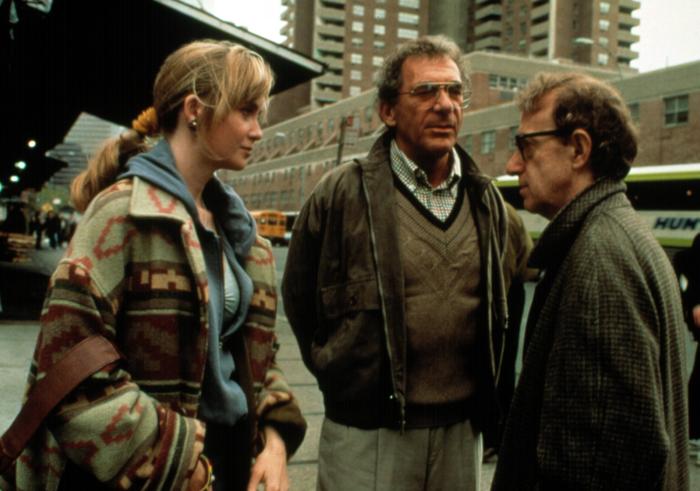
Husbands and Wives is one of Woody Allen’s most mature and emotionally raw films that capture the complexity of two self-destructing marriages.
The film is shot in a mock documentary style that is not new to Allen (see Zelig). It follows Jack (Sydney Pollack) and Sally (Judy Davis), and Gabe (Allen) and Judy (Mia Farrow). As Jack and Sally announce their intentions to separate, Gabe and Judy are forced to confront the shortcomings in their own marriage.
As the film goes on, each character engages in an affair with someone that starts out promising but then ends up hollow. Judy is the only character who ends up happy. She marries a co-worker Michael (Liam Neeson in one of his most unique performances). Yet her happiness results from the end of her marriage to Gabe. Perhaps Allen is attempting to force the viewer to question traditional, rational relationships.
The film invites the viewer to the stability of their relationships while also asking perplexing questions about male insecurity. The film gets at the deeper issues behind marriages and relationships. By presenting it in a documentary style, Allen is able to universalize the character’s struggles and shed light on the darker inner workings of a marriage. Husbands and Wives.
4. The Ice Storm (1997)
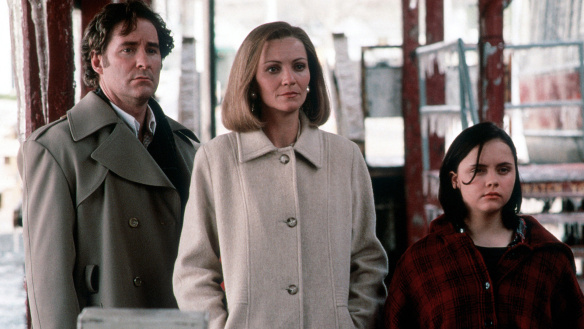
Ang Lee’s 2005 masterpiece Brokeback Mountain could have easily gone on this list but his lesser-known 1997 gem, The Ice Storm, is just as affecting and applicable. It seems to be a common trope among films dealing with affairs to be set in a suburban setting that’s exterior charm is gradually eroded as the film progresses.
The Ice Storm perfectly deconstructs the mythos behind suburbia. Set in the 1970s, a time of sexual revolution and geopolitical uncertainty, the film perfectly captures the liberation of the era while also managing to comment on the inevitable confining nature of that newly gained freedom as well as suburbia as whole.
The Hood family is at the center of the film. Ben (Kevin Kline) is having an affair with a neighbor (Sigourney Weaver). While his wife seeks to cure her boredom through committing small illegal acts such as shoplifting. The film lacks a moral backbone to fall back on and a feeling of despair and impending tragedy is always in the air.
The film perfectly explores how America, as a result of the Watergate scandal and the Vietnam War, had lost a sense of right and wrong and therefore engaged in destructive, unfulfilling acts of betrayal. Moreover, as a consequence of the changing sexual mores of the period, the children are neglected and left to their own devices showing the repercussions of the new founded revolution. The film poses some thought provoking questions regarding the social changes in the era and infidelity as a whole.
3. The Graduate (1967)
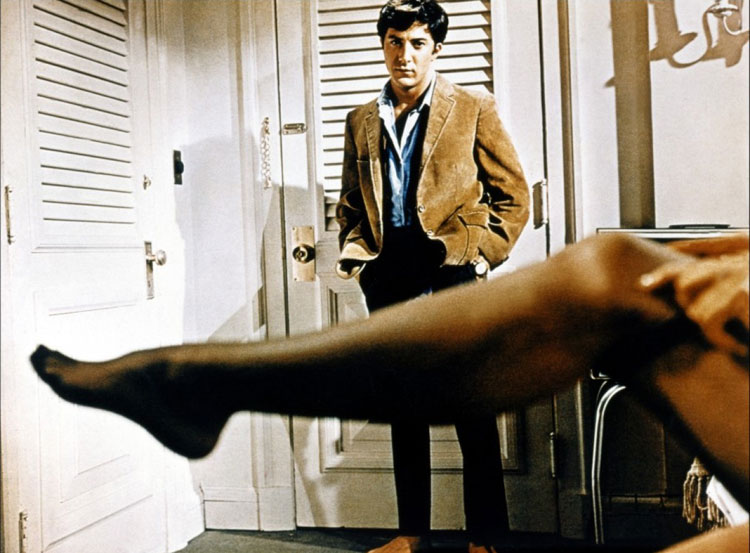
There are some movies that manage to both define a generation and stand the test of time. The Graduate is certainly one of those films. The film concerns an angst-ridden college graduate and his affair with an older temptress Mrs. Robinson (Anne Bancroft).
The Robinson’s marriage is a sham that was the result of an unplanned pregnancy. Marriage in the film is upended in the film countless times as the values of the institution are tested and pondered by Benjamin and others. The notion of marriage is shown as artificial and malleable. It is shown as something constraining and unsatisfying.
In the final shot, the expression of indecision on the character’s faces speaks to this theme. By posing these questions regarding marriage, the film expresses the 1960s changing social attitudes toward conventions.
The film deftly combines humor and intellect as Benjamin grows throughout the film, as he realizes how his affair with Mrs. Robinson is not the cure to his anxiety. His affair results in a sense of boredom and unfulfillment that only exacerbate his initial concerns. He eventually finds the solution to his malaise in the form of Elaine, the Robinson’s daughter. She brings a sense of excitement and vitality to Benjamin and is able to break him free of his apprehensions.
Benjamin Braddock is a paradox. His actions at times are those of an unlikeable character. Yet the viewer can’t help sympathize. Perhaps it’s due to the fact that although his actions are suspect at times, if put in the same position the viewer would have a hard time making different choices. His straight laced nature juxtaposed with the situations he gets caught up in make for a complex character that make the viewer question the different generational as well as marital values.
2. Hannah and Her Sisters (1986)
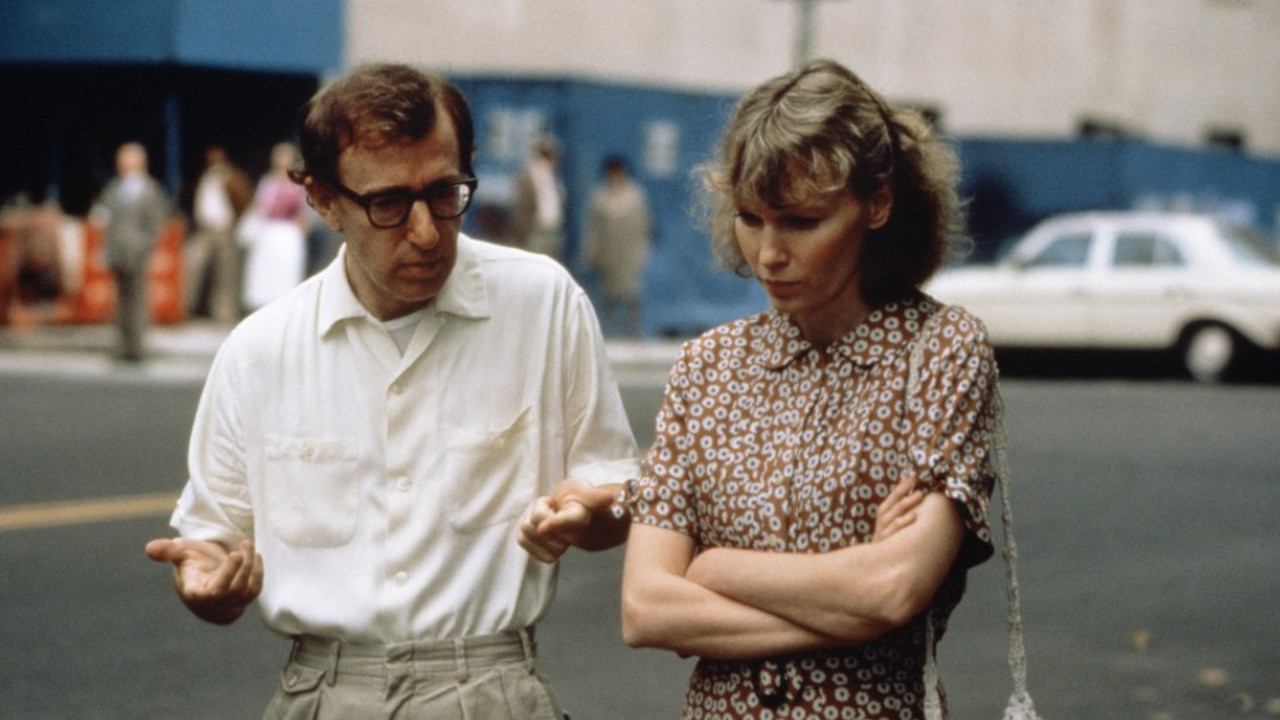
Woody Allen is a director fascinated by the instability of relationships. He himself is has had his own trials and tribulations with marriage. With Hannah and Her Sisters, Allen showcased his talent for storytelling, while also delving into complex ideas regarding love and human comfort.
The film tells the story of Hannah (Mia Farrow) and her two sisters Lee (Barbara Hershey) and Holly (Dianne Weist) and the men in their lives. Over the course of two years, the women’s relationships dissolve and reform in odd ways. By far the most interesting character in the film is Hannah’s husband Elliot (Michael Caine).
Elliot becomes enthralled by Lee and devotes himself to being with her. Elliot carries on an affair with Lee but nevertheless refuses to end his marriage to Hannah. Elliot personifies the complexity of relationships and the disparity between love and infatuation.
The film is undeniably funny yet in typical Allen fashion, very reflective. The film speaks to the volatile nature of love as well as life in general. However, Allen film is not a despairing one (as in his 1978 film Interiors, another family drama). The film is life affirming in its exploration of our desires, fears, and quests for meaning. The film encourages the search for love even in the face of uncertainty.
1. In the Mood for Love (2001)
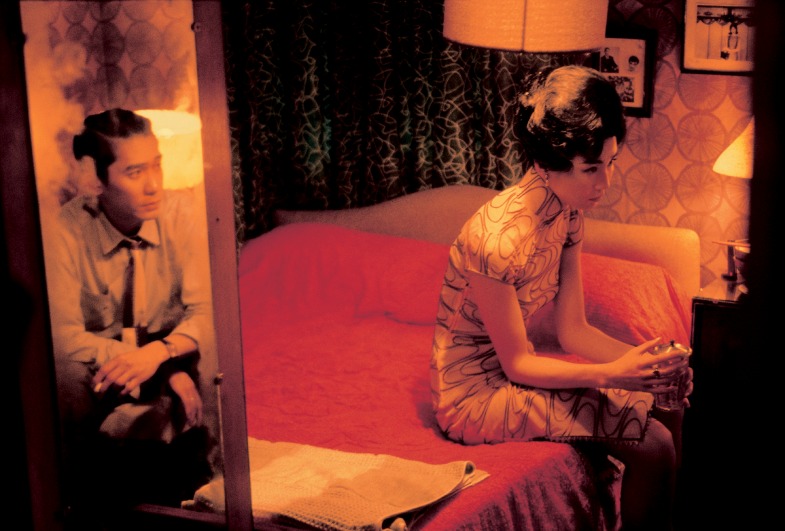
Chinese director Wong Kar-wai’s film is one that is just as meditative as it is visually mesmerizing. It is a film that centers around two characters who realize that their respective spouses are having an affair. The two gradually kindle their own tentative romance. The viewer never sees the cheating spouses, but it is not necessary to see them, the impact of their actions is always felt. Their presence and actions linger throughout the film.
The main characters are played by Maggie Cheung and Tony Leung. They each deliver understated performances of confined sadness and genuine pathos. The performances of the two leads seem so authentic that is not hard to believe that many of the scenes were improvised. The true talent of these actors shines through in the dialogue-less scenes where just their facial expressions are shown.
Wong Kar-wai is truly a master craftsman. The film’s camerawork is pristine in its ability to linger on the actors and make the most out of the film’s cramped setting. His visuals are simply astounding.
The colors that fill the screen are almost enough to overwhelm the viewer. Yet, the power in the acting brings the film back to earth and universalizes the struggle. The film’s plot is relatively simple, yet the themes extend far beyond the screen. It is a film about love, loss, and the cruelty of passing time.
Author Bio: Casey is originally from Chicago. He is Junior at New York University majoring in Cinema Studies with a minor in Film Production. He hopes to go on to Graduate school and eventually work in some creative component of the film industry.